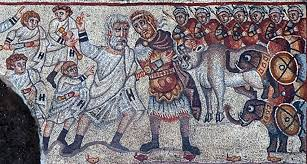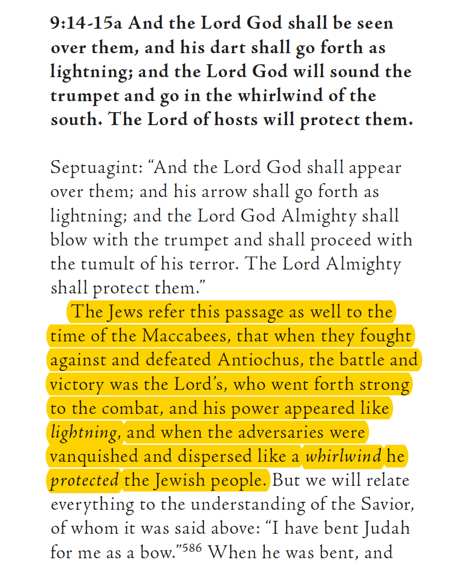A quick little thread—before it's too late!—on late ancient Jewish views of Hanukkah/the Hasmoneans *outside of classical rabbinic literature*, which, actually, do conform a bit more to the modern "nationalist" readings. 1/
But first—if this is the first twitter thread on Hanukkah by an historian of ancient Judaism that you're reading, you may want to pause and head over to read this one by @AnnetteYReed https://twitter.com/AnnetteYReed/status/1338263947271614467 2/
...or, this one, by @Simcha_Gross... https://twitter.com/Simcha_Gross/status/1338113206557011974 3/
...or this one by @MikaAhuvia https://twitter.com/MikaAhuvia/status/1338564886079500289 4/
To be sure, there is *much* to be said abt the Hasmoneans in rabbinic literature proper—not least about the question of if the rabbis "forgot" or "disremembered" (to borrow @esglaude's helpful term) the Hasmoneans. 5/
On this and other questions, see especially, Vered Noam's _Shifting Images of the Hasmoneans_ https://global.oup.com/academic/product/shifting-images-of-the-hasmoneans-9780198811381?cc=us&lang=en& 6/
(Booknoted here in @ancientjew by @danielpicus https://www.ancientjewreview.com/articles/2019/11/4/book-note-shifting-images-of-the-hasmoneans) 7/
But—"classical rabbinic literature" =/= "late ancient Judaism," or even all *elite* late ancient Jewish opinions. 8/
And Ophir Münz-Manor has pointed out that classical payetanim—late ancient Galilean Hebrew liturgical poets—were all about the Maccabees in their Hanukkah poems. http://thegemara.com/in-praise-of-the-hasmoneans-chanukah-beyond-rabbinic-literature/ 9/
Ophir shows that this particularly true in the piyyutim of Rabbi Elazar birabi Qilir, of the first-half of the 7th century. Here's just one example of how he celebrates the Hasmonean military win in his piyyutim for Hanukkah=> 11/
Ophir also brings the now famous Huqoq synagogue Elephant Panel mosaic into the mix, as some scholars say it depicts a Hasmonean win over the Seleucids 12/
There are some difficulties in explaining the difference here between piyyut/the synagogue & classical rabbinic texts:
Perhaps this a diachronic shift, as the piyyutim (and probably also the mosaic) all postdate classical rabbinic texts? 13/
Perhaps this a diachronic shift, as the piyyutim (and probably also the mosaic) all postdate classical rabbinic texts? 13/
But, as Ophir notes, "later" midrash repeats the Hanukkah themes found in classical texts.
But maybe that's just b/c they generally don't incorporate *all that many* new themes beyond what appear in earlier rabbinic texts? 14/
But maybe that's just b/c they generally don't incorporate *all that many* new themes beyond what appear in earlier rabbinic texts? 14/
Or is this maybe a difference in genre (liturgy/poetry)? In setting (the synagogue)? Perhaps one that reflects differences in leadership ("rabbinic" vs. a still-not-well-defined "para-rabbinic")? 15/
One way out of this would be to show that some Jews in Palestine held "nationalizing" views of the Maccabees already during or closer to the time at which the classical rabbinic texts were being composed. 16/
And in fact, we have such evidence! Thanks to our good friend Jerome, who records that some Jews read prophecies in Zechariah chapters 8-10 as having been fulfilled by the Maccabees, e.g.:
17/
17/
Rabbinic literature ofc has actualized readings of the bible, but I think it's fair to say that these are *almost always* actualized by something in the biblical canon- biblical/historic past. Did the Jews who Jerome is referring to view the Maccabees as part of this past? 18/
In short, I think this does show that there is what to be said for the earlier rabbis (at least in Palestine) having intentionally disremembered the Maccabees, & that it's important to place this in the context of internal, late ancient Jewish divides over how to remember them/19

 Read on Twitter
Read on Twitter






